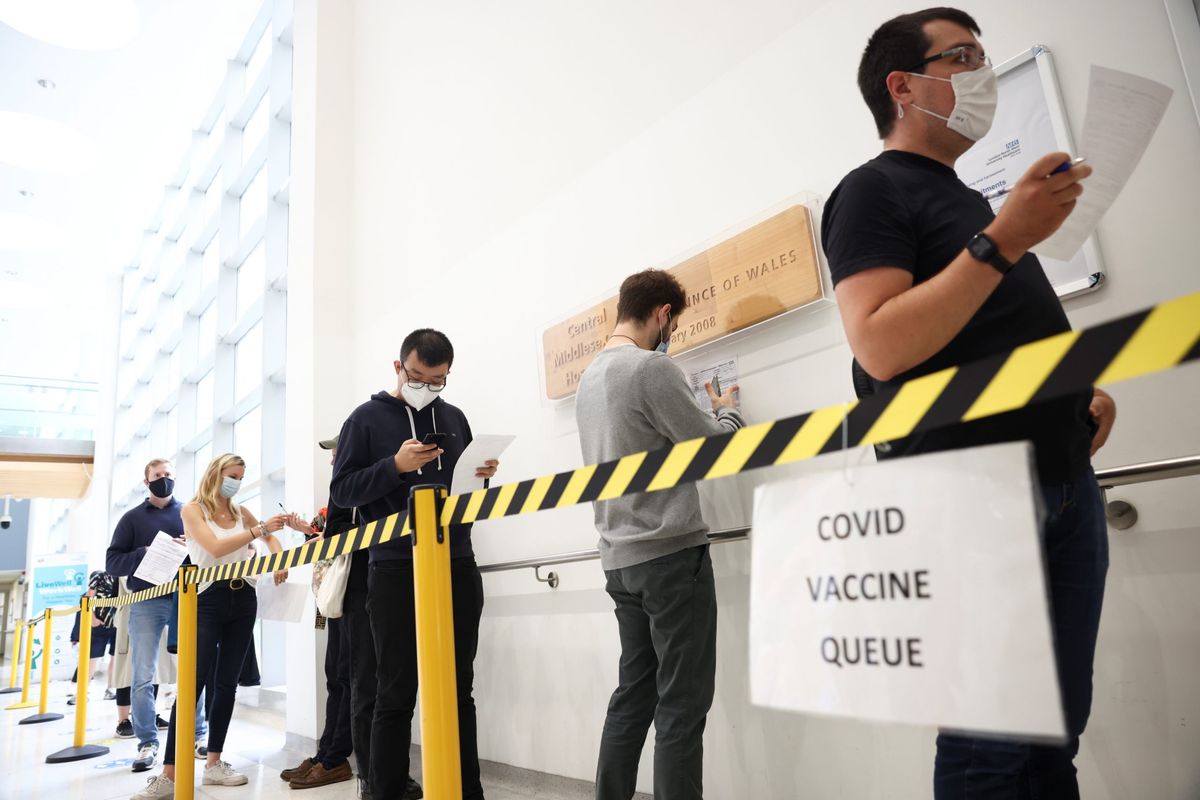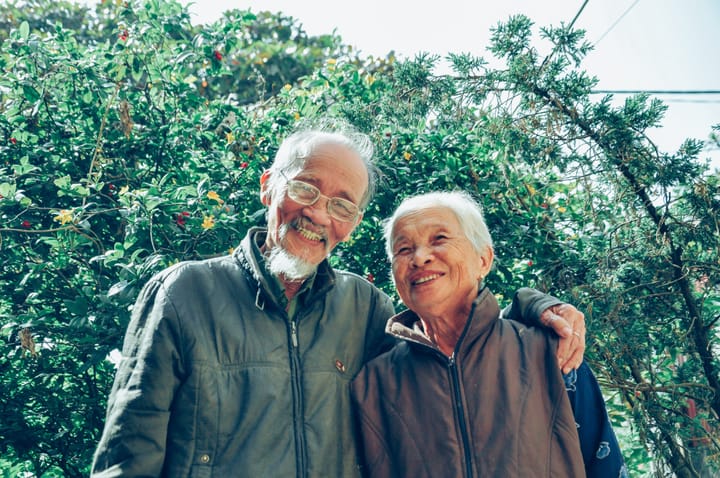Will we ever reach herd immunity? Experts are doubtful

A few minutes every morning is all you need.
Stay up to date on the world's Headlines and Human Stories. It's fun, it's factual, it's fluff-free.
Smallpox and polio were both eradicated by massive, global vaccine campaigns that eventually led to herd immunity, but even without total eradication, herd immunity is important.
What is herd immunity?
- With any disease, the more sick people there are the more opportunities there are to get other people sick.
- Makes sense, right? Well, herd immunity is basically the opposite of that same idea.
- When enough people in a population, or herd, are immune to a virus, there aren’t enough people for the virus to infect, and without enough people to infect, the virus fades away and the herd is safer.
- The beauty of this is that all these immune people don’t actually have to get sick. We can use vaccines to build our immunity and give us a shortcut to herd immunity, giving our health care systems a helping hand.
- At what point there aren’t enough new people to infect is what has been talked about as the threshold we need to meet for this COVID-19 pandemic to end.
- The math scientists use to find this point isn’t that complicated, but math can only get us so far when human behavior and unexpected events get added.
What makes herd immunity so important?
- Herd immunity has been seen as a tipping point for this pandemic, where there won’t be too many new cases and there won’t be any more surges.
- A lot of countries, including the United States and Sweden, pretty much completely aimed their response plans toward trying to reach this point.
- This isn’t really a surprise either, since herd immunity has been a central part of every disease eradication program so far.
- Smallpox and polio were both eradicated by massive, global vaccine campaigns that eventually led to herd immunity. But, even without total eradication, herd immunity is important.
With herd immunity possible, why get a vaccine?
- Some people don’t get the vaccine for various number of reasons, and even with the vaccine, some of our very old and very young citizens are still at risk.
- Herd immunity allows us to keep our most vulnerable neighbors safe by lowering the chance they’ll meet someone carrying the virus.
- This pandemic has seen hospitals fill up in a way nobody was prepared and patient care has suffered for it.
- All of these things come together to help our medical system as a whole, so any opportunity to prevent people from getting sick is a chance to ease the load.
How close are we?
- Before the delta variant, experts were estimating that the threshold was around 60-70%.
- But as the pandemic has progressed and delta has made itself known, those estimates need to be thrown out the window.
- Because delta is so contagious, some experts are now estimating a threshold of above 80%. Other experts are even less optimistic.
- “We are in a situation here with this current variant where herd immunity is not a possibility,” said the head of the Oxford Vaccine Group, Sir Andrew Pollard.
- “Will we get to herd immunity? No, very unlikely, by definition,” said Greg Poland, director of the Vaccine Research Group at the Mayo Clinic in Rochester, Minnesota. “It is a neck and neck race between the development of ever more highly transmissible variants which develop the capacity to evade immunity, and immunization rates.”
What’s the problem?
- The delta strain is one of the most contagious respiratory viruses humans have encountered, and, each time the virus multiplies and spreads to another person, there’s a chance it could evolve in a way that avoids our current immunity.
- This leads to an arms race between our medicine, immune system and the virus that changed our world.
- The virus does its best to multiply and thrive while we do our best to stop it.
- But, it isn’t just this arms race that’s keeping us from herd immunity, there’s also something called the Free Rider Problem that’s working against us.
What’s the free rider problem?
- This is when a healthy person refuses to get vaccinated and instead relies on the community’s immunity to protect them.
- But when too many people try to get a free ride, the community as a whole isn’t actually immune at all.
- There’s also the problem of vaccine inequity because vaccine distribution is, unfortunately, not equal across the board.
- The price prevents some lower-income groups from getting the vaccines they want. And even where the price isn’t an issue, distribution is not always equal.
Where do we go from here?
- Thankfully, herd immunity is not the only way to deal with a pandemic.
- Measles has a herd immunity threshold of over 95%, but the reason nobody hears about a measles epidemic is that the measles, mumps and rubella (MMR) vaccine is scheduled for every child when they’re only a year old.
- So, while the goal post has shifted a little bit in terms of herd immunity threshold, there’s still hope.
- Our best line of defense against the delta variant includes booster shots, which are an important part of decreasing the risk of getting COVID-19.
- Without herd immunity, the responsibility falls on everyone as individuals to protect ourselves through social distancing, masks and vaccines.
Have a tip or story? Get in touch with our reporters at tips@themilsource.com







Comments ()